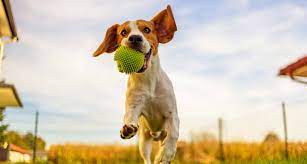Many studies to date have looked at the effect of diet and exercise on the gut microbiome. The composition of the gut microbiome can influence weight – in a mice study, when normal weight mice were given a faecal microbiome transplantation from obese people, those mice gained weight, while mice given a transplant of microbiota from normal weight people did not. The obesity epidemic is a serious issue for us, but now it also affects our pets. More than 50% of dogs in the US and 65% of dogs in the UK are overweight or obese.
The effect of diet on the gut microbiome of dogs has been studies, but those studies did not look at a potential added effect of exercise. In people, exercise has been found to change our gut microbiome. We also know that the microbiome of dogs and their owners can share similarities.
Because of this, we would like to examine the effect of exercise on the gut microbiome of obese dogs. At the same time, we will look at the effect of this change in exercise routine of the dog, on potential increase of exercise for the owner, and the changes in their gut microbiome as well. We would like to find out more about how exercise affects the microbiome of people and dogs, and potentially also find whether the beneficial effect of dog ownership extends to the microbiome. We might be able to find probiotics or prebiotics that could mimic the effect of exercise and help with weight loss. Overall, we hope that this study will benefit both us, and our four-legged friends.
We will examine faecal samples for gut microbiome composition and monitor exercise of dogs and owners using fitness monitors, for the course of 1 year.
